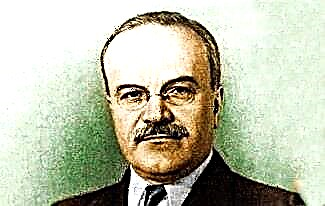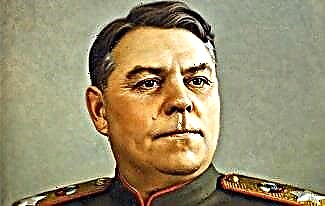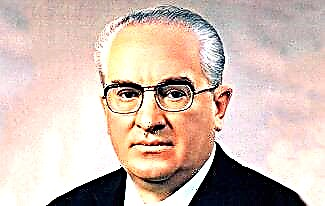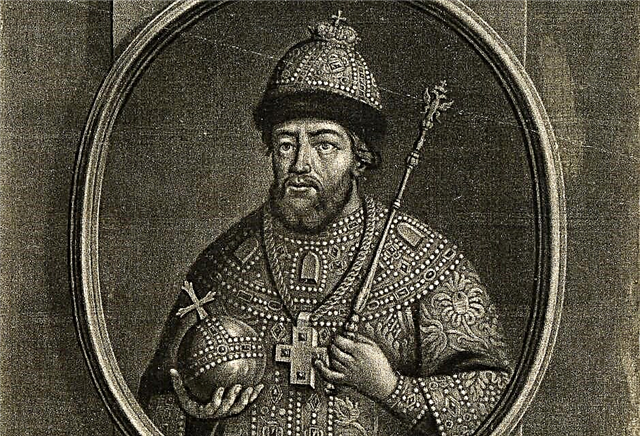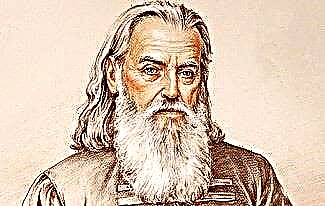Osip Mandelstam was a talented poet with a difficult fate. His wonderful works to this day touch the most delicate strings of human souls. Many people know who Osip Mandelstam is from his work, but his biographical data is no less fascinating.
Today Osip Mandelstam is one of the main poets of the 20th century, but it was not always so. During his lifetime, he was in the shadows among other poets of the Silver Age.
Western philologists began to seriously study the biography of Osip Mandelstam only when his collected works were published in the United States of America. Kirill Taranovsky, who is considered a philologist with Russian descent, as well as a teacher at Harvard, was able to formulate then the term "subtext". He said that the key to the incomprehensible places in the poems of Osip Mandelstam was in the text of other French and ancient poets. According to contemporaries, it is only by referring to these texts that new shades of meaning are acquired in Mandelstam's poems.

1. Osip Mandelstam was born in Warsaw in 1891.
2. The poet's father was a Jew - a wealthy Warsaw merchant who traded in leather. Osip Mandelstam was the eldest son in this family and had to follow in his father's footsteps, helping him in the family business. Osip rejected Judaism and did not want to give up his powers of commerce.
3. The name given to the poet at birth was also corrected. The poet's name was Joseph, but he began to be called Osip.
4. For the first time, Osip Mandelstam got into the poetry circle thanks to his own grandmother - Sophia Verblovskaya.
5. Osip Mandelstam is a poet who left behind more than 100 poems, but he did not write a single line for his first love - Anna Zelmanova-Chudovskaya. She was a talented artist and a pretty woman. The first love for the poet came when he posed for the artist who was painting his portrait.
6. Like many friends of Osip Mandelstam, at the beginning of the First World War, he wanted to go to the front in order to protect the Fatherland. He was not accepted as a volunteer at that time because of cardiac asthenia. Then the poet tried to get a job at the front as a military orderly. He even went to Warsaw, but the service at the front did not work out.
7. Osip Mandelstam had a terrible sweet tooth. Even living without boots and in the cold, he always pampered himself with delicacies.
8. The first collection he wrote, which was called "Stone", consisted of 23 verses. Mandelstam published it with the Pope's money in 1913 and then printed about 600 copies.
9. Osip Mandelstam published the first 5 poems in 1910 in a Russian illustrated edition with the title "Apollo". These verses have become antisymbolic in many ways. There was “deep peace” in them and it was contrasted with the prophetic pathos.

10. Mandelstam studied at 2 universities, but he did not receive a single diploma.
11. Many people knew about the love affairs of Osip Mandelstam with Marina Tsvetaeva. But few people knew that after parting with the writer, Mandelstam was so upset that he wanted to go to a monastery.
12. The poet, who could not accept Soviet power and was not afraid to openly declare about it, was sent into exile. So Mandelstam ended up in Voronezh, where he lived rather poorly and was interrupted by money received from transfers. Then the writer expected his own execution every day.
13. During the exile, Osip Mandelstam tried to commit suicide by throwing himself out of the window. The poet was able to survive, and his wife enlisted the support of Bukharin and Stalin himself, subsequently achieving the privilege of an independent choice of the place of exile for her husband.
14. When Mandelstam met Nikolai Gumilyov and Anna Akhmatova, he began to frequently attend a meeting of the "Workshop of Poets".
15. Khazina Nadezhda Yakovlevna became Mandelstam's wife. It was she who, after the death of her husband, released 3 books with memories of her beloved man.

16. By the time when Osip Mandelstam's poetic talent reached full bloom, he was no longer published due to disagreements with the government.
17. Osip Mandelstam loved to be in France. It was there that he met Gumilev, who was the reason for his passion for French poetry. Subsequently, Mandelstam called this acquaintance with Gumilev the main success in his own life.
18. Osip Mandelstam knew French and Italian. At the same time, he had never been to Italy, and learned the Italian language on his own. So he wanted to be able to read the literature of this country in the original.
19. The poet's life ended tragically. He died in Vladivostok from typhus. Then he lived in the conditions of the Stalinist camp unsuitable for life.
20. Osip Mandelstam was buried in a mass grave.



